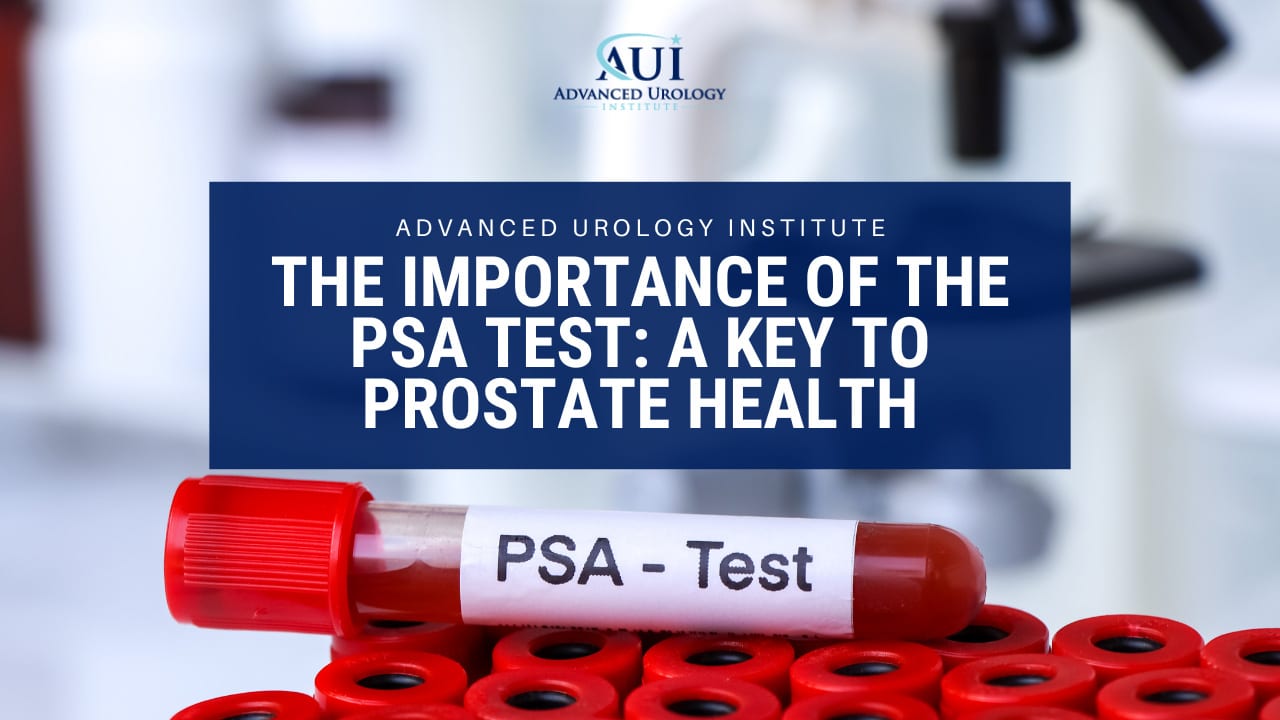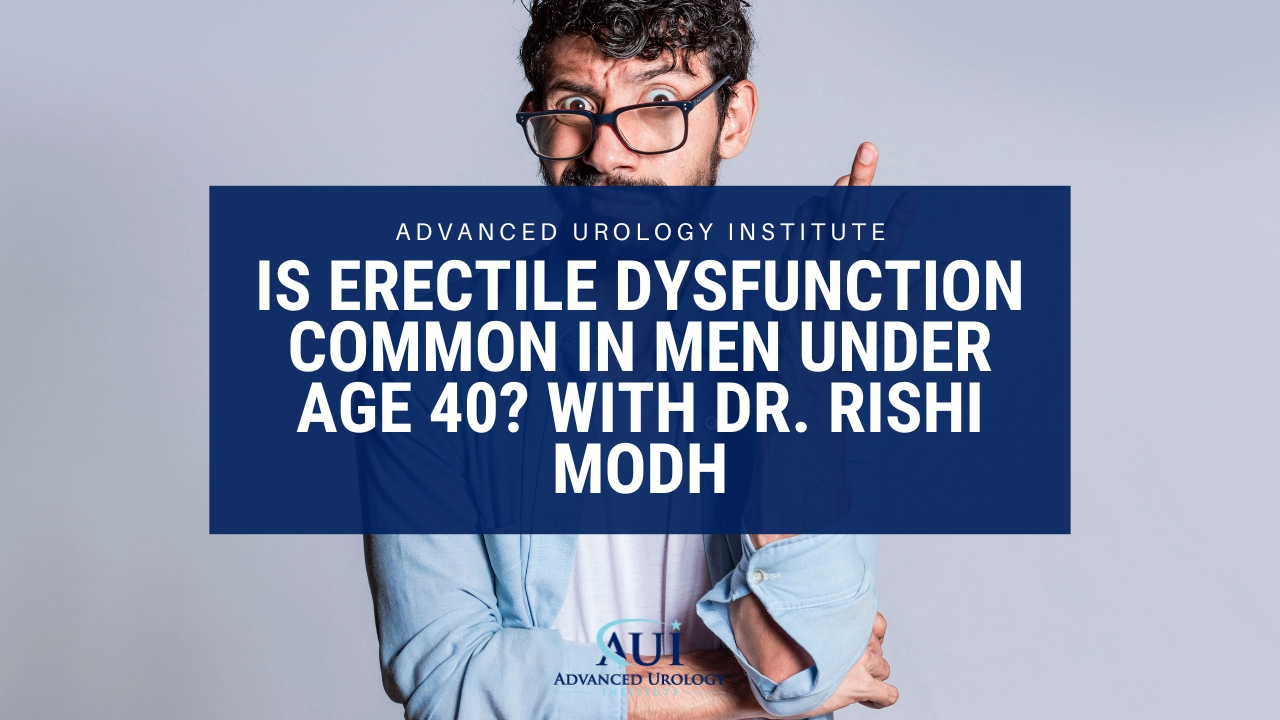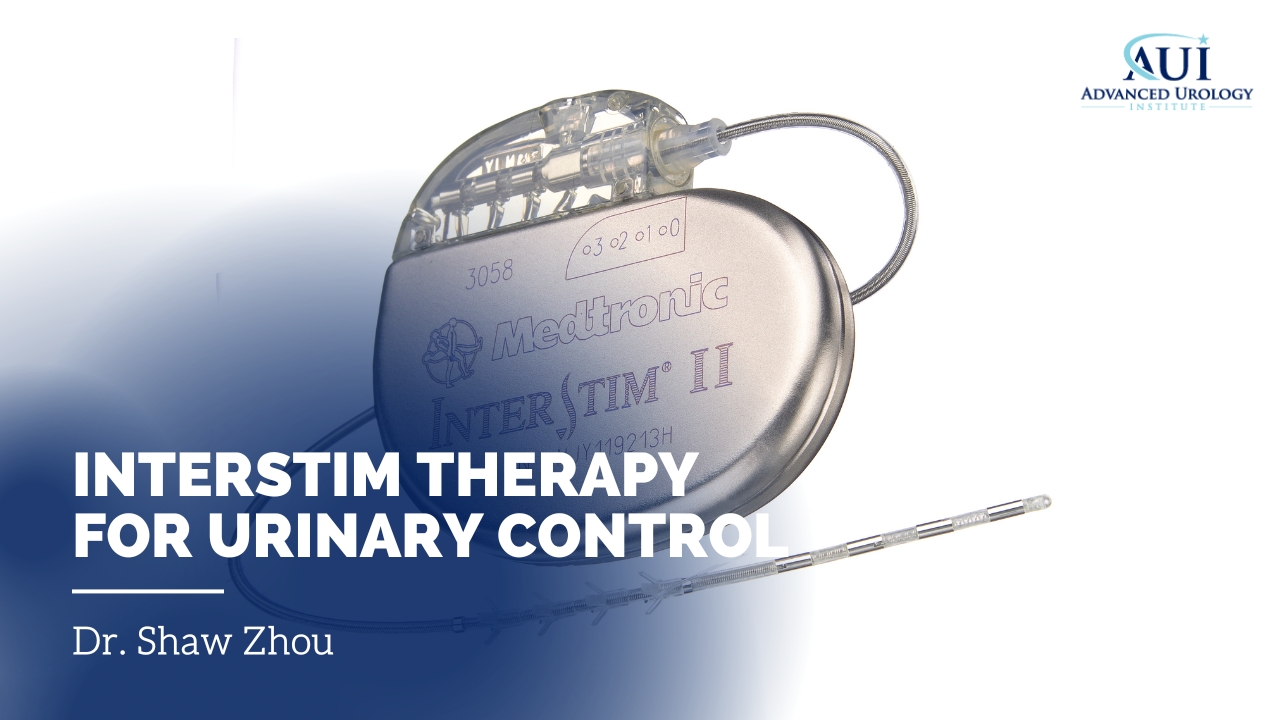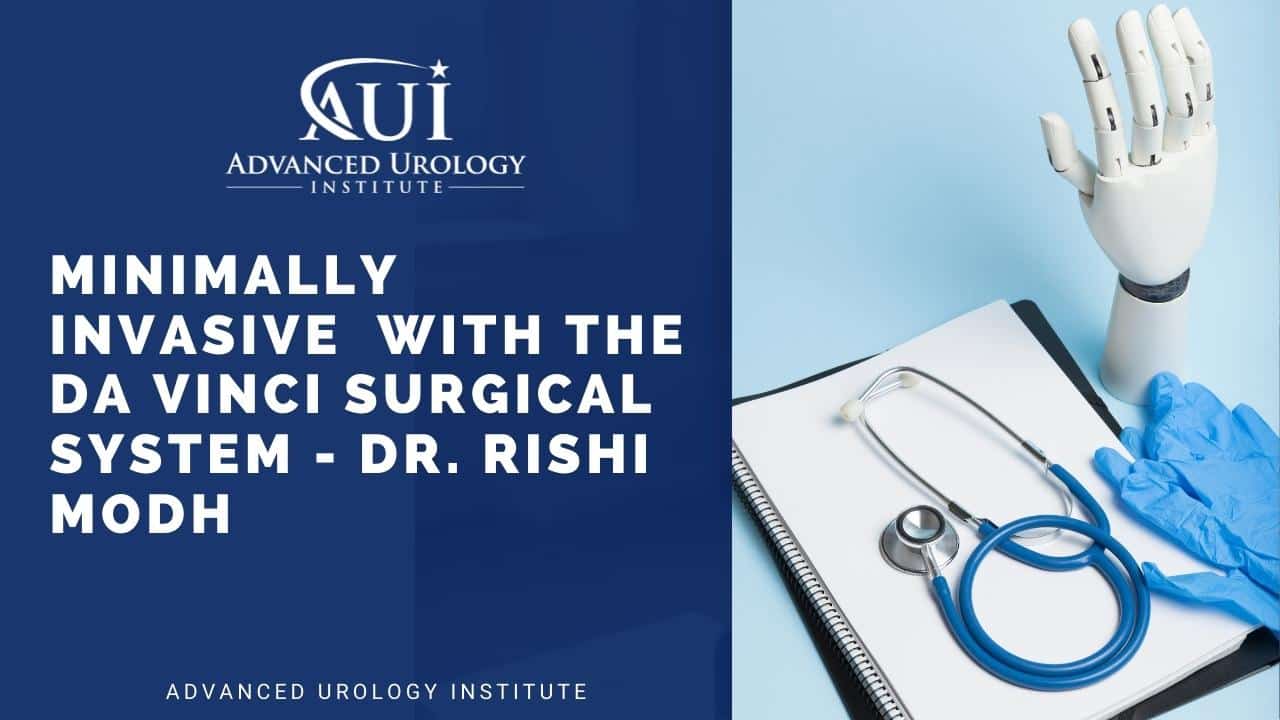Explore these urologist insights with Dr. Martin Richman and Dr. Shaw Zhou, as they share their thoughts on urology and its long-term benefits.
Continue readingThe Importance of the PSA Test: A Key to Prostate Health
Understand the importance of the PSA test. It is recommended for men between the ages of 55-70 who expects to live at least another 10 years.
Continue readingDr. Ketan Kapadia: The Drive to Make a Difference in Urology
Discover Dr. Ketan Kapadia’s Commitment to Urology Advancements. Learn How His Drive Shapes Positive Changes in Patient Care!
Continue readingMost Common Urological Problem In Women – Dr. Ketan Kapadia
Most Common Urological Problem in Women Revealed by Dr. Ketan Kapadia! Discover More Insights at Advanced Urology Institute.
Continue readingExperience Exceptional Urologic Care at St Petersburg’s 38th Street Office
At AUI’s St Petersburg 38th Street Office, you can be confident you’re receiving exceptional, cutting-edge urological treatment.
Continue readingHow to Treat Prostate Cancer – Dr. Sean Heron
What is the first sign of bladder cancer? with Dr. Ketan Kapadia
How does Dr. Rishi Modh treat female urinary incontinence?
Is Erectile Dysfunction Common in Men Under Age 40? with Dr. Rishi Modh
What is Dr. Shaw Zhou’s approach to InterStim Therapy for Urinary Control?
Individualized Treatment for Prostate Cancer – Dr. Rishi Modh
“Prostate cancer has to be an individualized conversation.” says Dr. Rishi Modh of Advanced Urology Institute in St Petersburg, FL.
Continue readingMinimally Invasive Robotic Surgery with the da Vinci Surgical System – Dr. Rishi Modh
My name is Rishi Modh, I’m a board certified urologist with Advanced Urology Institute. My favorite part of the practice is doing robotic surgery. I really enjoy using the da Vinci Robot to treat peoples problems in a minimally invasive way. And
Continue readingWhat Are the Side Effects of Prostate Cancer Treatment?
Penile Implants for Erection Problems – Dr. Rishi Modh
 My name is Rishi Modh, I am a board-certified urologist with Advanced Urology Institute.
My name is Rishi Modh, I am a board-certified urologist with Advanced Urology Institute.
So I think when you go see a urologist about erectile dysfunction, you need to see a urologist who specializes in implants as well. Not all urologists perform penile implants so they may not even offer it as an option for you. A penile implant is an outpatient procedure with a small incision and a fast recovery. It’s a mechanical device that’s placed inside your body that allows you to pump fluid into the penis in order to give you a great erection. Ninety-five percent (95%) of men are extremely happy with their penile implant and ninety-five percent (95) of partners would recommend it to someone else to have a surgery done.
Why Southerners Have a Higher Risk of Kidney Stone
I am Ketan Kapadia. I’m with Advanced Urology Institute and a board certified urologist.
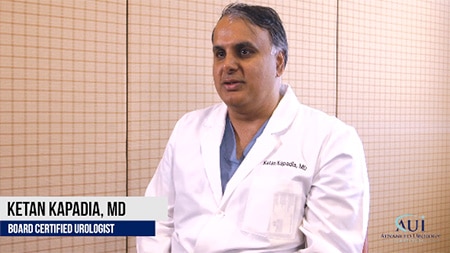 Obviously the heat is going to play a major role, a lot of it has to do with our diet unfortunately as well. [As with] an American diet, we just don’t eat very well, we’re all a little heavier and that also increases the risk of kidney stones as well.
Obviously the heat is going to play a major role, a lot of it has to do with our diet unfortunately as well. [As with] an American diet, we just don’t eat very well, we’re all a little heavier and that also increases the risk of kidney stones as well.
The interesting thing here in Florida, which isn’t talked about very much and this is sort of the holistic treatment of the patient in urology, which is we get a lot of men who have prostate problems who start cutting back on their fluids because they don’t want to get up at night; And when you start cutting back on fluids and not getting up at night, now you’re at more risk of [getting] stones. We see a lot of older guys who come in with kidney stones for the very first time because they got a prostate problem as well and that hasn’t really been addressed.
Same with women who have overactive bladder. First thing most people do is they start cutting back their fluid so they’re not having to run to the bathroom all the time. Again, you cut back your fluid and now you’re living in Florida in the heat, you’re going to get kidney stones. So a lot of doctors will be more than happy to just get rid of your stone and have the surgery [but] I’m also interested in preventing that next stone. Part of that is getting twenty-four (24) hour urines, seeing why you’re making stones, addressing all the overactive bladder problems and prostate problems because I don’t want you to end up having more stones. I’m happy to operate and take out stones, that’s fun, but it’s my obligation to help prevent [it from happening agan].



